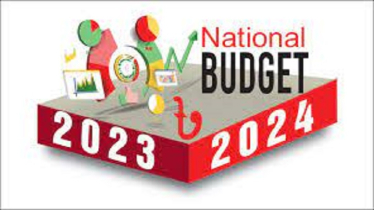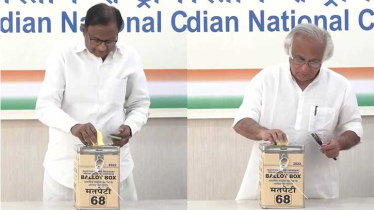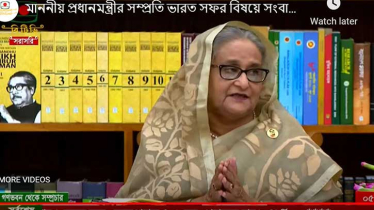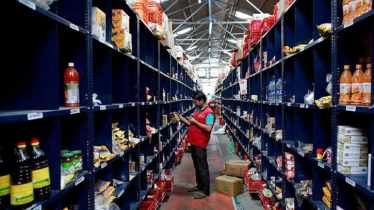
Photo: Sayem Khan
As Bangladesh embarks on a new political chapter under the leadership of Professor Yunus and his interim government, there is a critical opportunity to address one of the most pressing issues facing the nation: electoral reform. The expectations are high, and rightly so. The interim government stands at a pivotal moment, tasked with the responsibility of steering the country towards a more transparent, democratic, and fair electoral process. This reform is not just a political necessity but a moral imperative to restore and uphold the democratic values that are the cornerstone of a just society.
The task ahead is both challenging and imperative. Reforming Bangladesh’s electoral system is not merely a procedural change; it is a fundamental step towards restoring democracy and ensuring that every citizen’s voice is heard and respected. Under the leadership of Professor Yunus, the interim government has the opportunity to make a lasting impact on the future of Bangladeshi democracy. By addressing the shortcomings of the past and embracing a new era of transparency and fairness, the interim administration can pave the way for a more equitable and just electoral process. The nation’s future depends on it, and the expectations are clear: a return to democratic integrity and the protection of every citizen’s rights.
For the past 15-16 years, Bangladesh has been under the shadow of an authoritarian regime that has systematically undermined democratic processes. The previous government’s actions have often been characterized by a disregard for electoral fairness, leading to widespread disillusionment among the populace. Allegations of voter suppression, electoral fraud, and manipulation have marred the democratic process, depriving citizens of their fundamental rights and skewing the representation of their voices in the government.
The impact of this long-standing authoritarian approach has been severe. It has eroded public trust in the electoral system and created a pervasive sense of injustice. As the interim government takes office, there is a clear and unequivocal demand from the people of Bangladesh: a return to a democratic process that genuinely reflects their will.
The interim government, led by Professor Yunus, carries the weighty responsibility of overseeing the electoral reforms that are crucial for restoring public confidence. The expectations are high, and the stakes are even higher. The interim administration must ensure that the reforms address the root causes of electoral malpractices and pave the way for a genuinely democratic process. This involves:
The new electoral framework must guarantee that elections are conducted fairly and transparently. This means implementing robust mechanisms to prevent voter manipulation, ballot tampering, and other forms of electoral fraud.
The independence and effectiveness of electoral institutions need to be reinforced. This includes ensuring that the Election Commission operates free from political interference and is empowered to enforce electoral laws effectively.
Every citizen’s right to vote and have their vote counted must be safeguarded. This involves addressing barriers to voting, such as intimidation or logistical challenges, and ensuring that all eligible voters have access to the electoral process.
The electoral reforms should also focus on inclusivity, ensuring that marginalized groups have equal opportunities to participate in the political process. This includes addressing gender disparities, and providing support for underrepresented communities.
The people of Bangladesh are watching closely. They have been deprived of their rights for too long and are demanding a system that respects their voices and choices. The interim government’s success will be measured by its ability to deliver on these expectations and implement meaningful reforms that restore trust in the electoral process.
It is essential that the interim government remains accountable to the people. Transparency in the reform process and active engagement with civil society organizations and political parties can help build a consensus around the proposed changes. Public confidence will also be bolstered by clear communication about the steps being taken and the progress being made towards a fairer electoral system.
The recent resignation of Chief Election Commissioner (CEC) Kazi Habibul Awal and his team has marked a significant moment in Bangladesh’s electoral landscape. Appointed on February 27, 2022, with a mandate for five years, the commission’s early departure after just two and a half years underscores a persistent issue in the country’s election management. As the nation prepares for the formation of a new Election Commission, it is crucial to reflect on the controversies surrounding the past commission and advocate for comprehensive electoral reforms to ensure a truly democratic process.
During the farewell briefing, CEC Kazi Habibul Awal addressed the controversies that have clouded the country’s elections over the years. He pointed out that even the inaugural general election in 1973, which marked the birth of Bangladesh’s democratic framework, was not free from controversy. This historical perspective highlights a long-standing pattern where electoral processes have often been marred by disputes and allegations of irregularities.
Election commissions in Bangladesh have frequently been perceived as extensions of the ruling government rather than independent bodies. The recurring theme of partisanship and lack of transparency has led to a trust deficit among the electorate and critics alike. The commissions formed for the elections of 2014, 2018, and now 2024 have faced scrutiny for their perceived biases and their failure to uphold the principles of a free and fair election.
The core issue lies in the electoral law and the process of forming the Election Commission itself. Article 118 of the Constitution mandates legislation to guide the formation of the Election Commission. However, the legislation enacted in 2022, which was intended to address these issues, has been criticized as insufficient and flawed. Experts argue that the law, while passed by Parliament, does not adequately address the concerns of transparency and impartiality. It merely formalizes a previous notification rather than introducing substantive changes.
For electoral reforms to be effective, the law governing the appointment of the Election Commission needs to be revised. The process must be designed to ensure that commissioners are selected based on merit and integrity rather than political loyalty. Appointments should be made through a transparent process that holds the commissioners accountable to the public, not to any political party.
As the current commission steps down, the formation of a new Election Commission presents an opportunity for radical reform. The next commission will oversee the crucial National Assembly elections, making it imperative that the reforms be implemented without delay. Key aspects of these reforms should include:
Amend the existing electoral laws to address the shortcomings identified by experts. This includes creating a more transparent and accountable process for the appointment of the Election Commission members.
The new Election Commission must operate free from political influence. Its members should be selected based on their expertise and commitment to democratic values, rather than their affiliations.
Implement robust mechanisms for monitoring and overseeing the electoral process to ensure that elections are conducted fairly and transparently.
Involve civil society organizations, political parties, and the general public in discussions about electoral reforms to build consensus and support for the changes.
To restore public confidence and ensure the integrity of future elections, it is essential that the new Election Commission operates under a reformed legal framework that prioritizes transparency, independence, and accountability. The forthcoming reforms must address the historical flaws in the electoral system and pave the way for free, fair, and credible elections. Only through such comprehensive changes can Bangladesh hope to build a democratic process that genuinely reflects the will of its people.
Author is a columnist and Managing Director of Goalando Hatcheries Ltd.
U








